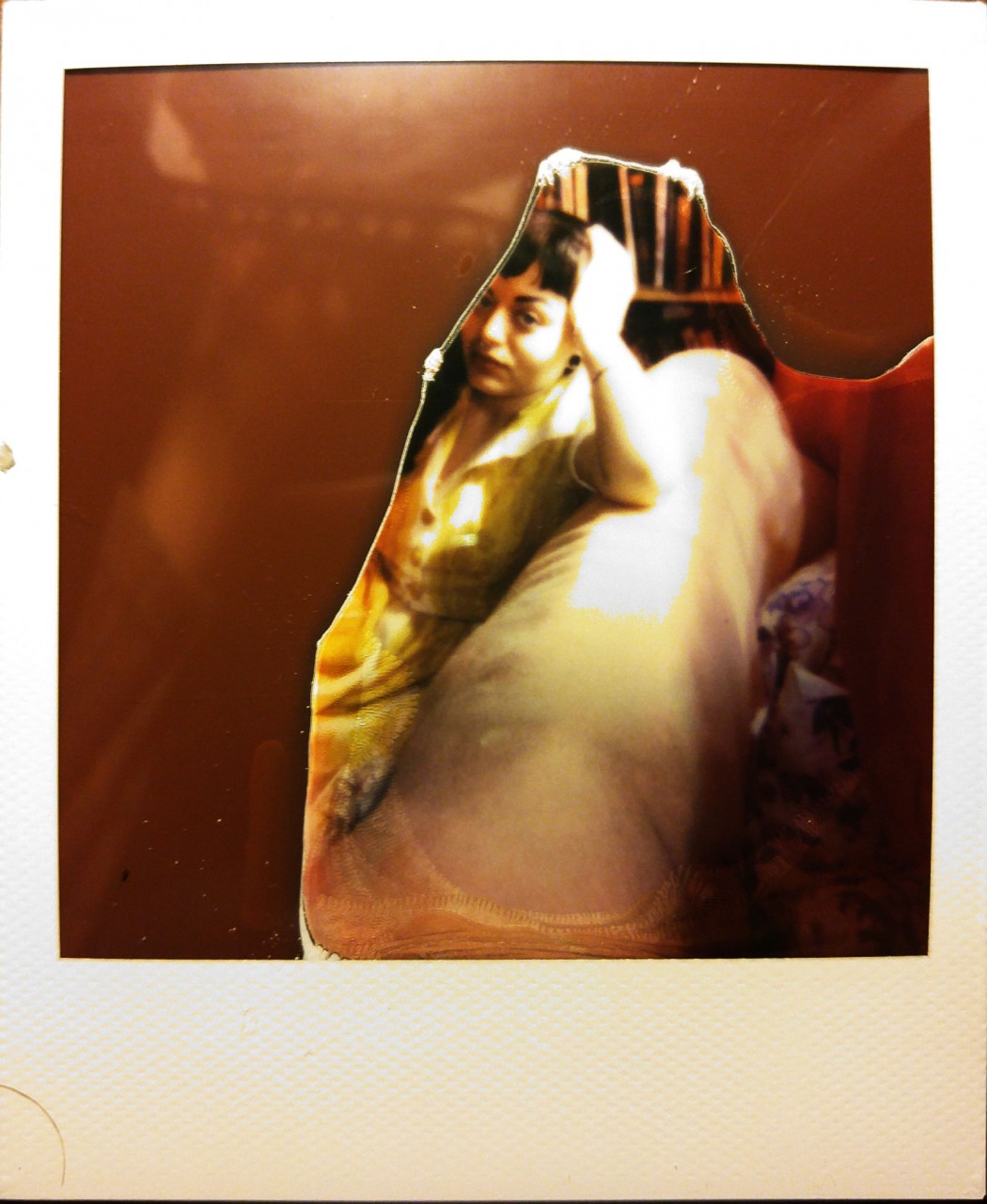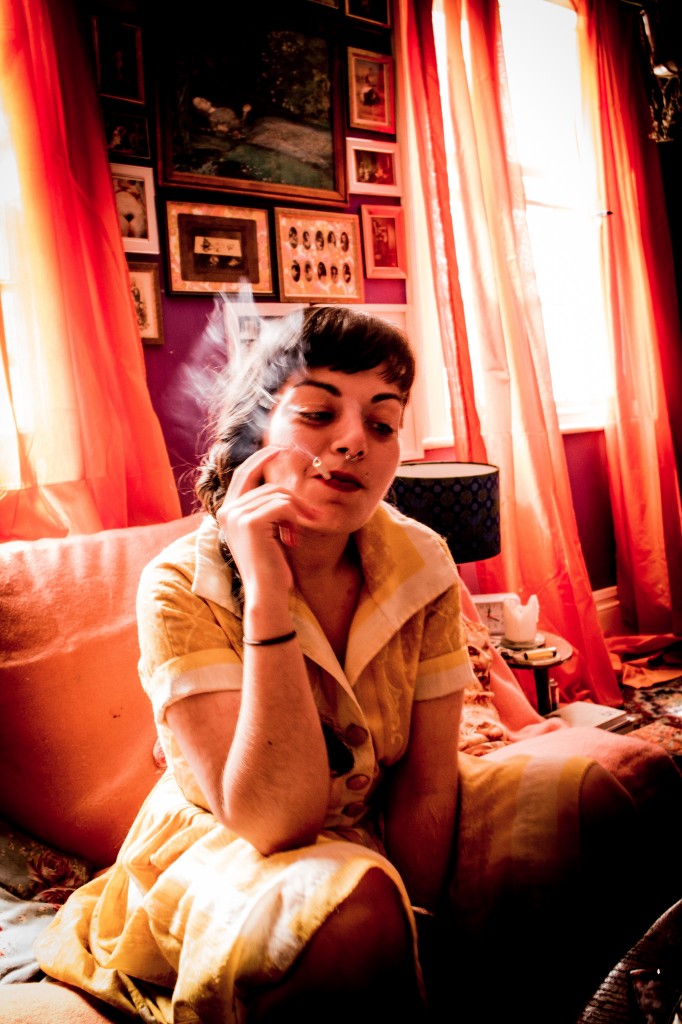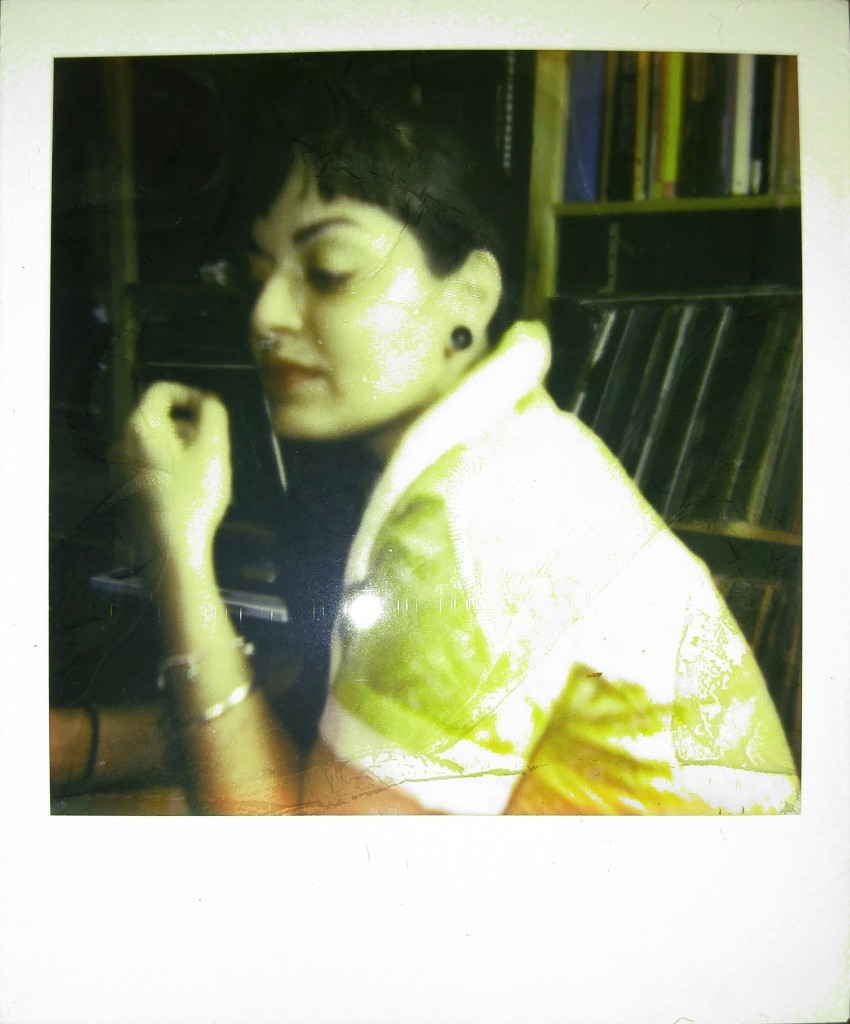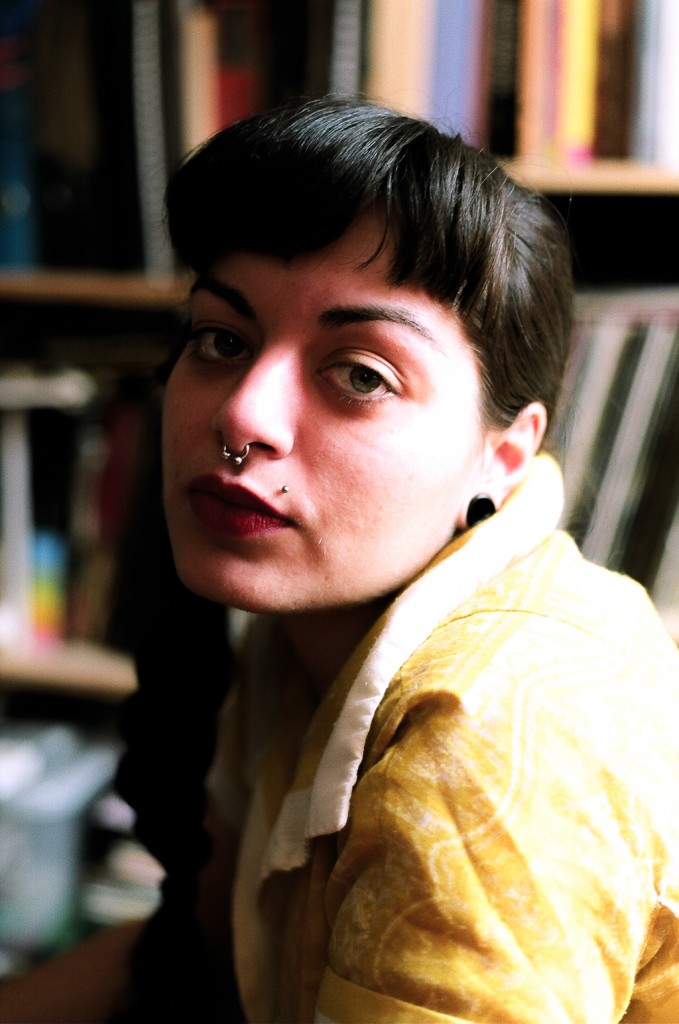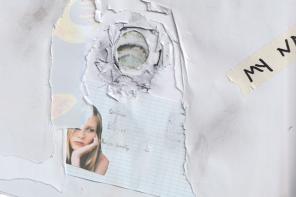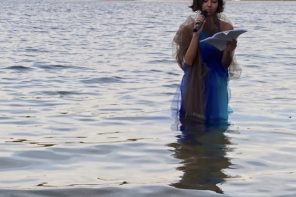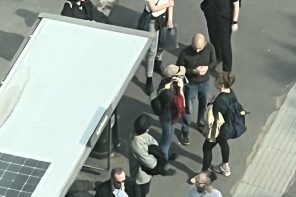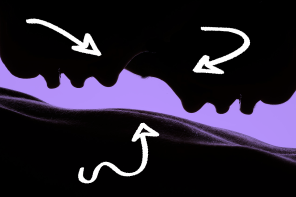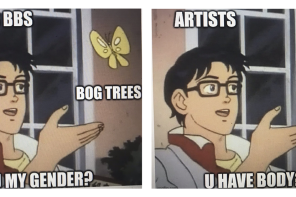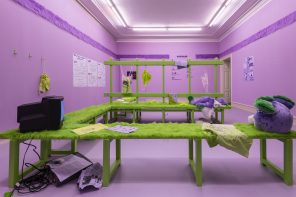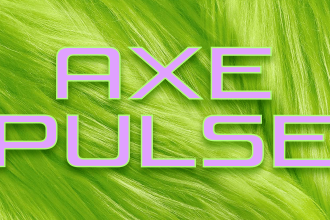It’s hard to miss Agata Cardoso’s work, amongst the familiar sea of stereotypical saccharine images that claim to summarize femininity today. Working solely in analogue, her photography is a hypnotic blend of emotive imagery and painterly effect, bearing a striking resemblance to the shadowy prophesies of a Caravaggio masterpiece. The London-based artist creates her own mythology through re-working narratives of historical folklore in her ‘Archetypes’ series. It’s rare to find an artist whose work binds together contradictions with ease; sombre yet enticingly warm, powerful but delicate. Leading the viewer through an emotionally tumultuous relationship, her work stays imprinted on the mind long after the physical artwork has gone.
Ever since HYSTERIA hosted her first solo exhibition at SOMA Gallery in Berlin, I have been exceptionally curious to speak to the artist behind the enigmatic series. I visited Agata Cardoso at her home in Camden, where we spoke about the marvels of early Victorian photography, being a technophobe, and hysteria, of course.
What are you working on right now?
I am still working on the ‘Archetypes’ series, which is the largest project I have done. I am lucky to be exploring the rich history of hysteria, a particular strand of hysteria which is based on notions of Jean-Martin Charcot’s ‘Parisian Hysteria’. The ‘Archetypes’ series is about claiming and creating my own mythology, but also, I’ll take the story of Daphne & Apollo whereby she avoided becoming a victim by asking Mother Goddess to turn her into a tree, or I’ll take the Shakespearian play Titus Andronicus, and re-create an image of Lavinia whose hands and tongue were cut off and replaced with branches. Eventually, I will have a huge series of work and I hope to find a publisher who could eventually make the series into a book.
The principle power of your work is invested in its pathos, as you are your canvas. Do you think you will ever turn the lens outwards?
I have recently turned the lens to other women. Eventually the project will be a mix of myself and other women. Just last weekend I went to Wiltshire in order to photograph them – I was incredibly lucky to get them to pose! One lady had a skin condition called ‘dermatographia’, that means that your skin is highly sensitive and when scratched lightly reacts and raises like welts. She gave me free reign to draw, which was exciting.
What sparked your interest in hysteria?
My interest in hysteria started at University when I did my MA (Agata studied Fine Art at Wimbledon). For me the interesting part at first was the diagnosis itself, which was full of contradictions and bizarre imagery. At that time, being a washerwoman was a terrible life full of stress and abuse, and it was usually these lower working class woman that ended up at the Salperiere hospital, manifesting an extensive repertoire of symptoms involving the body and the mind-induced spasms and other weaknesses,which resulted in hospitalization. The more I explored it, the more I identified with these women and I then became fascinated with the photographic categorization of hysteria. I see the act of hysteria as being a type of feminine repression; but also their bizarre behaviours and their actions were so flamboyant and theatrical, that it was almost a language of female protest and resilience. That to me is interesting. In a way it is similar to performance art, you are using your body to express. Some will be repulsed by it or they will be attracted to it. You can’t predict the reaction, as it is the unknown. Patients sporadically and compulsively adopted a bizarre posture (christened arc-de-cercle) in which they arched their body backwards until they were supported only by their head and their heels. Augustine was famous for this particular posture.
Your work seems to speak specifically to women, and is obviously feminist in spirit. What is the masculine reaction to your work?
I like to involve men in my work, when they stick around to participate. I get the feeling that men are intimidated by my work, and women are attracted to it. It’s very interesting to see how gender influences perception. I hope to challenge pre-conceived ideas of womanhood and femininity, which are completely constructed. I want others to look at something different.
Is there any occult influence within your work?
Absolutely, I explore the mystic feminine, so my work integrates elements of that. I am interested in Egyptian symbology, for example, the serpent is the oldest symbol of the goddess and goddess worship. I find that symbols are extremely powerful as they draw energy, and that becomes a focal point in my work. I will often get an idea from the piles of books next to my bed…but mostly, an image will come to me and I draw it immediately. All my images are meticulously planned before a shoot.
I read in a statement on your website, that some people love your work and some hate it? Can you speak about that?
Some people hate it; I think some want it to go away… It was really hard to get a show in London, generally it is hard to show my work, get an interview or even get published in the UK. I think it is because of the content; I have many problems with nudity and censorship. I knew Berlin would accept me with open arms, and it bloody did. People were willing to engage in dialogue with me, and it just felt how it should feel. I have plans to go work there at the end of the year; I think the European art scene has a lot more to offer at the moment.
What is different for you about Berlin and London in terms of artistic production?
While I was setting up at the SOMA gallery in Berlin, there were loose wires all around the floor, and nobody cared. I feel London is steadily becoming more oppressive in terms of creativity, young and talented artists are not getting a look in. They say with austerity comes creativity, but I haven’t seen any sign of this, grants cuts are affecting emerging artists, and the same art clique get the top shows. We also need to be aware what is happening politically in the UK, we are treading dangerous waters. We are living in a time, where our government is telling us everyone is potentially an extremist for vocalizing their thoughts. I think that is frightening and sinister, I feel we have reached Orwell’s 1984. There is so much whitewashing going on.
Do you have any advice to fight back?
I just want to say, in this climate we are in right now, its vital for us to inform ourselves properly, do your research, look for alternative ways to gain knowledge and access information. Look around and then turn to look at yourself, learn from your mistakes, question what you’re told and stay true to yourself. Don’t be scared to speak your mind, there will be a place for you, even if you might feel you are an outsider at first. The road is hard, so enjoy the journey because it will make you who you are.
Interview by Ellie Howard
Photography by Laura Dyer

